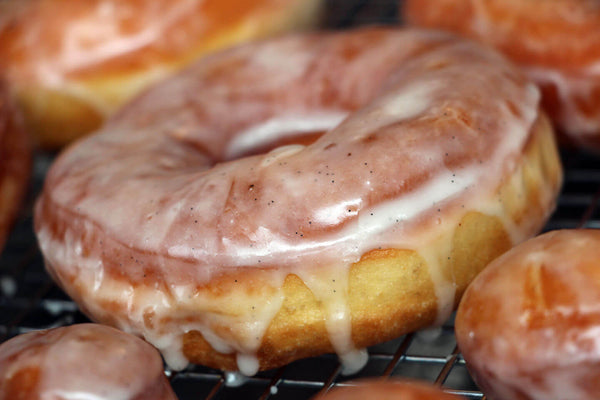Confectioner's glaze, also known as resinous glaze, is a premium shellac created from a natural resin and manufactured primarily for use in food.
Shellac is one of the main ingredients of confectioner's glaze. The glaze is primarily used in confectionery to coat chocolate-covered items, such as candy-coated almonds, raisins, and similar things.
Many candy companies use confectioners' glaze to give their sweets a glossy, smooth surface. But insect secretions are used to make Shellac. So, now the question arises are confectioners glaze halal? Well, let's find out.
Does it have alcohol?
Alcohol is haram for Muslims. When producing confectioners glaze, shellacs are dissolved in an alcohol solution to create resinous glazing. So, to answer the question, yes, it does contain alcohol. So, the presence of alcohol itself makes it haram.
Also, it is not a vegan product. Products with Shellac are not considered vegan because they are dried lac insect fluids. However, for vegans, there is an alternate version of candies, such as vegan gummies, which is delicious and healthy for skin and hair.

Where Is Confectioner's Glaze Used?
Shellac is a food additive with the E904 code. It is listed on food products with different names also, such as confectioner's glaze, candy glaze, resinous glaze, confectioner's resin, natural glaze, and pure food glaze.
The principal applications for Shellac in confectionery involve coating chocolate-covered items, like candy-coated almonds, raisins, and related goods. Nevertheless, many individuals might not be aware that it is also applied as a coating to several foodstuffs, medications, fruits, and sometimes coffee beans.
Additionally, Shellac is utilized as a coating for capsules and tablets since it prevents the pill from degrading in the stomach. Since there are regular products that several people use, it becomes vital to know the halal and haram status of the product.
Is Confectioners Glaze Halal?
Particularly over the last ten years, Shellac has been the subject of much misunderstanding. According to Islamic law, insects aren't considered filthy in Islam because their blood doesn't flow. In contrast, eating insects is not permitted.
Only external usage is allowed for products that include insect-derived substances. Since Shellac is derived from the secretion of a female bug, it is considered haram.
Although residues and fragments of this bug can be detected in the finished product when it is produced as a glazing ingredient, therefore, it will be forbidden to eat edible goods that include Shellac. To dissolve Shellac, if there is a use of alcohol, and if the alcohol evaporates before it is glazed over the food products, the glazing process is not halal.

Conclusion
Summing up, if it is vital for you to consume halal food, the best option is to purchase products that are alcohol-free and vegan or vegetarian. You will undoubtedly find what you're looking for because there are more halal certified goods, such as multivitamins gummies, available than ever before.


